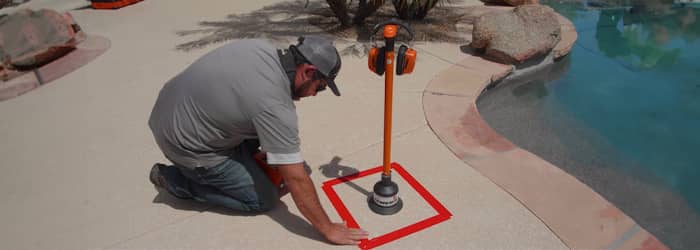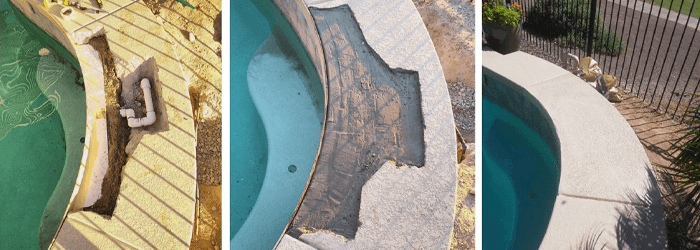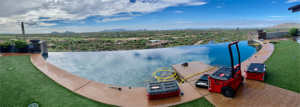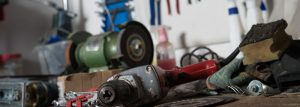We asked Rosie on the House Certified Partner, Ian Hanley of PinPoint Leak Detection & Repair to help us better understand why leak detection is so important.
How Do I Know If I Have A Leak?
The most obvious way to determine if you have a leak is by seeing water pond or pool in areas that are normally dry unless the irrigation is running. This could be in your yard from landscape irrigation systems or your home from plumbing systems. The not-so-obvious takes a bit more sleuthing. Ian gives us some other indicators.
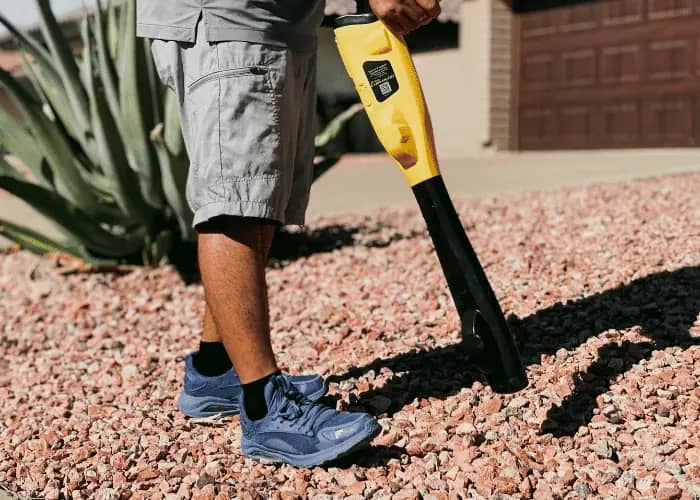
Conduct a Property Leak Survey. This low-cost and fairly quick process can determine what area of your property may have a leak. Yard leaks are often associated with irrigation systems, but that is not the only water source on your property. Conducting this preliminary investigation will save time and money on a mistaken location.
Look at your water bill. The bill has a considerable amount of data about your water usage. Compare month over month and using the same month year over year are valuable tools. If your usage has increased and you can’t explain why, then checking for a leak makes sense. Some utility companies will text or email you if your usage seems out of whack.
If you are on a domestic well, the best way to check if your system is leaking is to turn off all water-using devices and listen. Is the pump still running? Look at the pressure gauge. The system should hold pressure if water is not being used. If it is not holding pressure, then you may have a leak.
Pools are popular in the warmer climates of Arizona and are a source of water leaks that may not be so obvious. Many pools have an auto-fill function, but dropping water levels may not be an indicator. Listen to the auto-fill pump. Is it running continuously? If it is, that’s a good indicator that you may have a leak. Without the auto-fill pump, are your water levels dropping? If they are, there may be a leak.
In your home, many water-using devices may leak. If damage or water is not visible, listen. Is the toilet constantly running? Is the faucet dripping? Are you using more salt in your softening system than usual? These are all indicators we need to pay attention to.
Likely Leaks
Ian tells us the most common source of leaks they find is from a pool. These leaks account for about 90% of the leaks seen by his company.
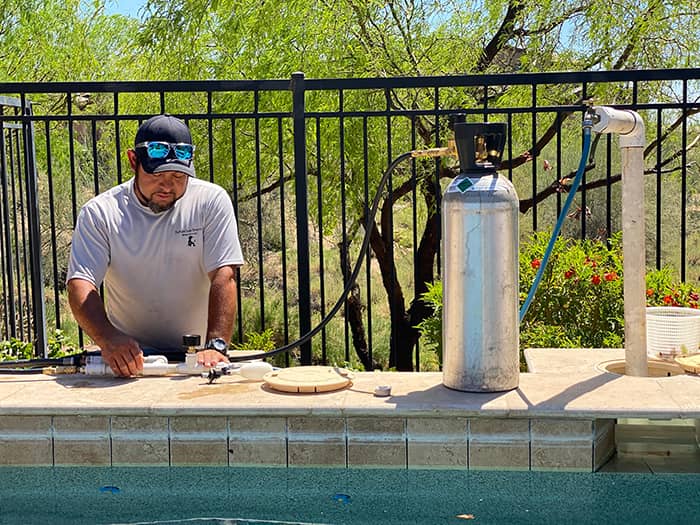
The yard accounts for about 5%, as does your home, another 5%.
Your yard is typically associated with a landscape irrigation system. Your home, as previously mentioned, has various devices that can leak, including sinks, toilets, tubs, and water supply lines, both hot and cold, and RO systems. Basically, anything that uses water can leak.
Leaks below the foundation slab are difficult to see, and the water damage that can accrue could cause structural damage. Wet spots on the floor, water pressure drops, and foundation issues indicate a hidden leak.
How Do You Find The Leak?
When the source of a leak is not obvious, sophisticated detection methods should be employed. Ian tells us that the investigative process differs depending on the suspected source.
Water line leak detection begins by pressurizing each line individually. If the pressure doesn’t hold in a particular line, his team sends a mixture of water and gas through the line. A leak should be identified by a bubble or gurgle. Ian’s technicians listen with sonar devices for the bubbling or gurgling to pinpoint the leak.
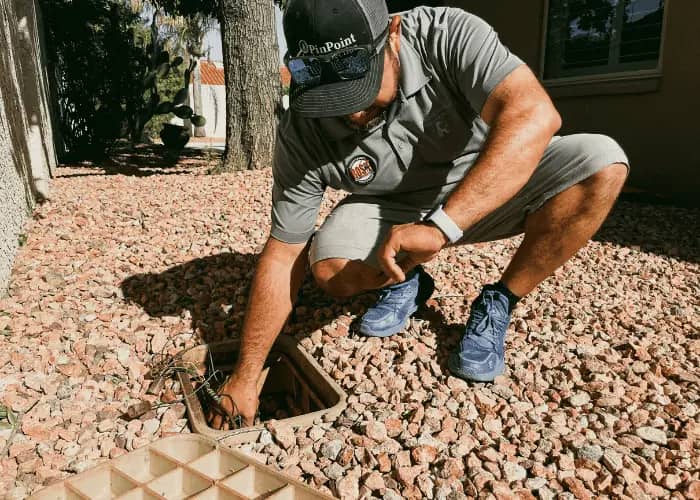
Pools can be trickier. As with your home, there are several potential sources for leaks. Pipes, drains, skimmers, light fixtures, and the filter system are potential sources of leaks. A technician will snorkel in the pool, searching for cracks and listening for leaks using a hydrophone. When a crack is found, dye will be injected around a potential leak source. If there is a leak, the dye will be sucked in.
Slab leaks are detected using listening devices such as sonar.
When The Leak Is Found…
Before going straight to a repair, the leak location is marked. Typically, in your home, a piece of blue masking tape will identify the specific location of the leak. Depending on where the leak is, you may need to employ more than a plumber to fix the situation.
- Leaks behind a wall will likely need the wallboard removed and repaired. Repainting will also be needed.
- Leaks under the slab may require a concrete cutting company before the plumber does their magic.
- Yard leaks may also need a walkway or portions of a patio removed. The landscaping may also be affected.
- Pool leaks, which are the only leaks Ian’s company repairs, can involve electrical work if lighting is involved, decking is to be removed and replaced, and repairs of the pool finishes may also be involved.
The detection company should furnish a detailed report with photos of the leak or its specific location so repairs can be made.
If you suspect you have a leak and don’t know where it is, Ian suggests your first call be to a detection specialist, not a plumber or landscaper.
Rosie on the House Certified Partner PinPoint Leak Detection & Repair would be a good place to start.
###
CONTENT PARTNER | PinPoint Leak Detection & Repair

PinPoint Leak Detection & Repair is Rosie on the House Certified, equipped, and ready to help all of our Rosie listeners with their pool and property leak needs. We are licensed, bonded, insured, and have over 20 years in the pool industry. As a Green Gilbert Business, we strive to help the continuous water conservation efforts, one leak at a time.
PODCAST
Ian Hanley of Pinpoint Leak Detection & Repair discusses the three zones where leaks can happen: home, landscape, and pool. Learn how a water efficiency audit can find possible leaks and save water. Most leaks aren’t obvious. Learn how they detect pool leaks without draining the pool and other ways to determine if you have leaks.
Podcast Archive With Expanded Content and Resources
PHOTO CREDIT

